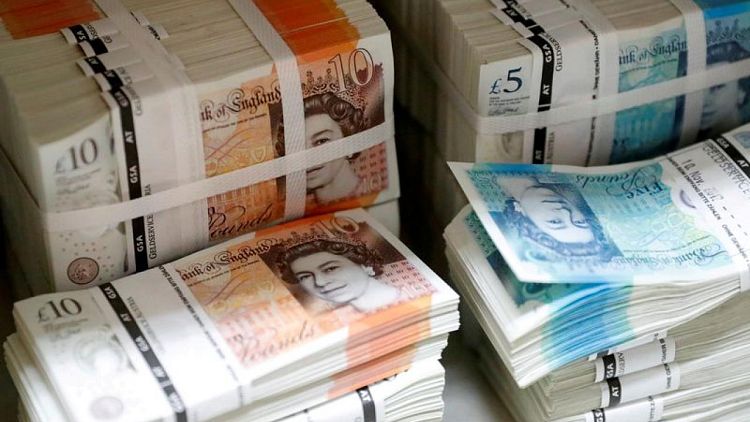By Stefano Rebaudo
-Sterling recovered from intraday lows on Wednesday after British finance minister Rishi Sunak announced stronger economic growth and lower public borrowing forecasts.
Announcing forecasts drawn up by the Office for Budgetary Responsibility (OBR), Sunak said in his budget statement that the economy was likely to grow by 6.5% in 2021, faster than a forecast of 4.0% made in March when Britain was still in a coronavirus lockdown.
The 6.5% forecast was close to the International Monetary Fund's estimate that British gross domestic product will grow by 6.8% in 2021, the fastest among Group of Seven nations after the country suffered the biggest slump in the G7 in 2020.
Against the U.S. dollar, the pound recovered from a 1-1/2 week low hit in early London trading to trade down 0.1% on the day at $1.3750. It had slipped as much as 0.4% earlier.
The OBR cut its forecasts for borrowing in each of the subsequent four financial years.
"The fiscal deceleration could weigh on sterling from here, and expectations of a Bank of England rate hike at next Thursday’s Bank of England meeting have pulled back a tad further," said John Hardy, head of FX strategy at Saxo Bank.
Markets are now assigning a 62% probability of a rate increase next week compared to 71% last week, CME data shows.
Bank of England interest rate-setter Silvana Tenreyro said she needed more time to judge how the end of the government's job-saving furlough scheme affected the labour market, adding to signs that she sees no urgency to raise rates.
But the pound remain trapped in narrow ranges on headlines of EU-UK wrangling over post-Brexit trade.
Britain said on Monday the European Union's proposals to solve the problem of trade involving Northern Ireland did not go far enough, and significant gaps remained between the two sides.
Against the euro, the British pound weakened 0.3% at 84.57 pence.















